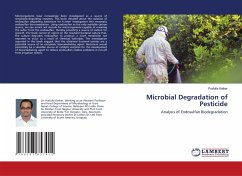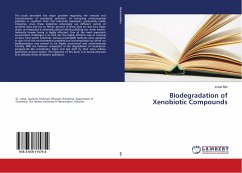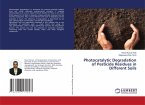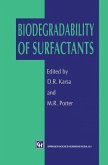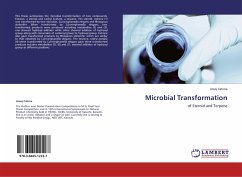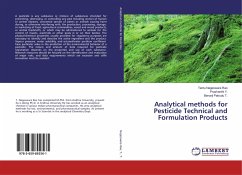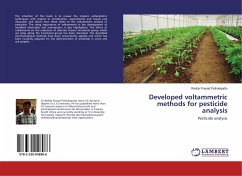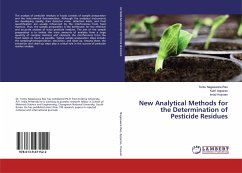Microorganisms have increasingly been investigated as a source of xenobiotic-degrading enzymes. This book detailed about the isolation of endosulfan degrading bacterium for further investigation into enzymatic endosulfan bio-remediation. Using endosulfan as the only available carbon source, we can enrich soil inocula for microorganisms capable of releasing the sulfur from the endosulfan, thereby providing a source of carbon for growth. The book consist of report on the resultant bacterial culture that, the culture degrades endosulfan to produce a novel metabolite not reported to occur as a result of chemical hydrolysis. The investigation reported in this book suggest that the obtained bacterial isolates are a potential source of an enzymatic bioremediating agent. Bacterium would potentially be a valuable source of catalytic enzymes for the development of bioremediating agent to reduce endosulfan residue problems in run-off from irrigation waters.
Bitte wählen Sie Ihr Anliegen aus.
Rechnungen
Retourenschein anfordern
Bestellstatus
Storno

